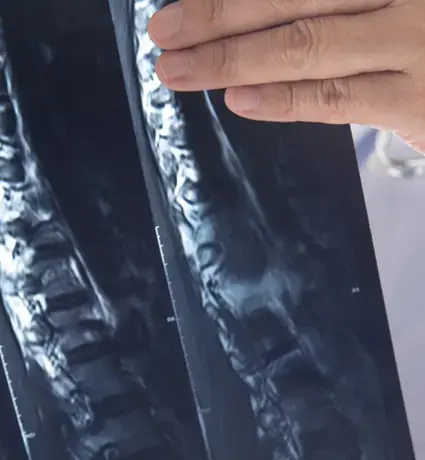
Cauda Equina Syndrome Claims: Getting the Compensation You Deserve
When you seek medical help for back pain, you expect a timely and accurate diagnosis. But when serious conditions like Cauda Equina Syndrome are missed or mistreated, the consequences can be life-changing.
At Smith Partnership Solicitors, our experienced medical negligence solicitors help clients across the UK pursue compensation when medical professionals fail in their duty of care.
What Is Cauda Equina Syndrome?
Cauda Equina Syndrome (CES) is a rare but serious neurological condition. It occurs when the nerves at the base of the spinal cord - known as the cauda equina - become severely compressed. Without urgent surgical intervention, this can lead to permanent damage and lasting disability.
Common symptoms include:
- Severe lower back pain or sciatica affecting both legs
- Numbness or tingling in the saddle area (buttocks, genitals, inner thighs)
- Loss of bladder or bowel control
- Weakness or paralysis in the lower limbs
If you experience these symptoms, it's considered a medical emergency. Delay in diagnosis or treatment can cause irreversible harm.
What Causes Cauda Equina Syndrome?
CES can be triggered by several medical conditions or injuries, including:
- Herniated (slipped) disc
- Spinal tumours
- Infections affecting the spine
- Spinal fractures or trauma
- Narrowing (stenosis) of the spinal canal
In some cases, Cauda Equina Syndrome may occur due to medical negligence - such as a GP, A&E doctor, or specialist failing to recognise red-flag symptoms or act quickly. If your condition was missed, misdiagnosed, or treated too late, you may have grounds for a compensation claim.
How Rare Is Cauda Equina Syndrome?
Cauda Equina Syndrome is extremely rare, affecting only 1 to 3 in every 100,000 people. Because it’s so uncommon, many patients are sent home or misdiagnosed when they first seek medical help. However, rarity is no excuse for negligence. If you’ve suffered due to delayed diagnosis or improper treatment, we’re here to help.
Is Cauda Equina Syndrome Considered a Disability?
If surgery is not carried out within a critical window - typically within 24 to 48 hours - CES can lead to permanent neurological damage. This may include chronic pain, incontinence, sexual dysfunction, and mobility issues, all of which qualify as a disability under UK law.
What Can Cauda Equina Compensation Cover?
Every Cauda Equina claim is different, and compensation will depend on the severity of your condition and the impact on your life. However, your claim may include:
- Medical costs - including future care or rehabilitation
- Loss of earnings - both past and future
- Home or lifestyle adaptations - such as mobility aids or accessible housing
- Therapy and support - including counselling and physiotherapy
- Pain and suffering - for both physical and emotional distress
Our dedicated clinical negligence solicitors will fight for a settlement that reflects the full extent of your suffering and needs.
How Do I Make a Cauda Equina Syndrome Claim?
The first step is to speak to a medical negligence solicitor who understands complex spinal injury cases. To build a successful claim, you’ll need to show that:
- The care you received fell below acceptable standards
- This failure led to avoidable harm
We’ll gather all the necessary medical records, expert opinions, and evidence to support your claim - and support you throughout the process.
How Can We Help?
If you’ve experienced Cauda Equina Syndrome as a result of delayed diagnosis or treatment, get in touch with our specialist medical negligence solicitors. Contact our team by telephone on 0330 123 1229, complete our contact form, or send us an email via info@smithpartnership.co.uk.

Share this article






















